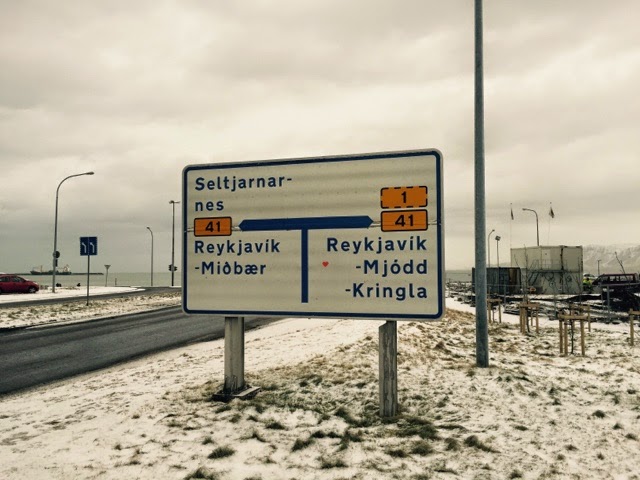The Cheapest Way to Buy Icelandic Krona Currency
Falling in between the opposite ends of super-organised and leaving it until you've made it to the departure lounge; I started to think about purchasing Icelandic Krona (ISK) a couple of days before flying.
My first step was to find out the exchange rate and where to get the best deal. Google brought up the conversion rate of £1 to 199 Icelandic Krona (ISK) in January 2015. The next step was to find out where I could go locally. I found an independent foreign exchange shop in Brighton, ASDA offering around £1 to 186 ISK, while the Post Office offered £1 to 176 ISK. So far so good until I found out that Icelandic Krona isn't kept in stock and I had to pre-order. The next day I found out my pre-order wouldn't be ready in time. This left me a little concerned.
I would have to try and buy some at the airport, where I knew the rate would be less competitive and, sure enough, they were offering £1 to 168 ISK. Oh dear.
Taking their offer, I exchanged some money while falling out with my Cardiff Fella who was confident we could change money in Reykjavik for a better deal.
When we arrived at Keflavik airport outside Reykjavik my Cardiff Fella bought some currency in the airport and was offered £1 to 196 ISK exchange rate.
Lesson learned - change your money in Iceland for a better rate.
Check the Weight of your Baggage Allowance before Leaving Home
What I had failed to check before flying was the weight allowance. 5kg is not a lot, don't assume you've packed light enough. Check your weight allowance before leaving home so that you don't end of up paying £22 each way for additional weight allowance.
Increase your Chances of Seeing the Northern Lights
We didn't see them. The Northern Lights. Those magical, mystical, reason-for-heading-north, natural phenomenon lights. I knew before we left there was a chance we wouldn't get to see them and as neither of us had been to Iceland we knew it wouldn't matter as we would have a fabulous time anyway. But still.
 |
| Reykjavik, Iceland |
That said, to increase your chances of seeing the Northern Lights take note of the following:
- You are more likely to see the Northern Lights in autumn or spring (rather than mid-winter)
- Avoid booking around the time of the full moon
- You're most likely to see the Northern Lights between the hours of 9 pm and midnight than at any other time
- Book, at least, four nights, so that if your tour is cancelled on the first night you have three more chances to join the tour
- Book a Northern Lights tour
Make the Most of the Geo Thermal Bathing
Although unlucky in respect of the aurora borealis, we were lucky enough to enjoy some geo-thermal bathing.
However, when they say the salt will wreck your hair, believe them.
 |
Take with you some conditioner for your hair and moisturiser for your face to apply liberally afterwards. The experience is absolutely wonderful, we floated about in the light-blue cloudy water, under bridges to a bar that served strawberry sparkling wine. As we relaxed, sipping our drinks, the weather changed from blue skies to snow flurries and hail, while we remained toasty warm. Around us were couples and friends covering each other's faces in mud packs, while in the distance rocky terrain lay covered in snow.
We also enjoyed a trip to an indoor swimming pool in downtown Reykjavik built in the 1930s, which looked as if it hadn't changed much in the last 80 years or so (and still looked great). The pool temperature was around 38 degrees and outside they had a sauna and two hot pools. Just as in every other culture I know the old dudes of Iceland had found a place to congregate, and so it was in Reykjavik. Sat in the outside hot pool a group of local men talked around us as we marvelled at the sensation of soaking in naturally heated water as snow flakes fell on our faces. This was definitely the highlight of our trip.
Make Sure to Use the Cold Water to Clean your Teeth
It was only when we got back and my fascination for Iceland had been piqued that I discovered why the tap water had smelt so bad.
What I hadn't realised was that their hot and cold water came from different sources. The hot water does smell of rotten eggs, but what's amazing is that it comes straight from a geo thermal source. While the cold water doesn't smell at all and is so pure it's received an ISO 9001 quality standard.
One thing's for sure, I want to go back and explore some more. If you've been to Iceland and learnt some tips worth passing on I'd love to add them to my list. Please leave your tips in the comments and I'll share them too.
Click here to Follow my blog with Bloglovin

